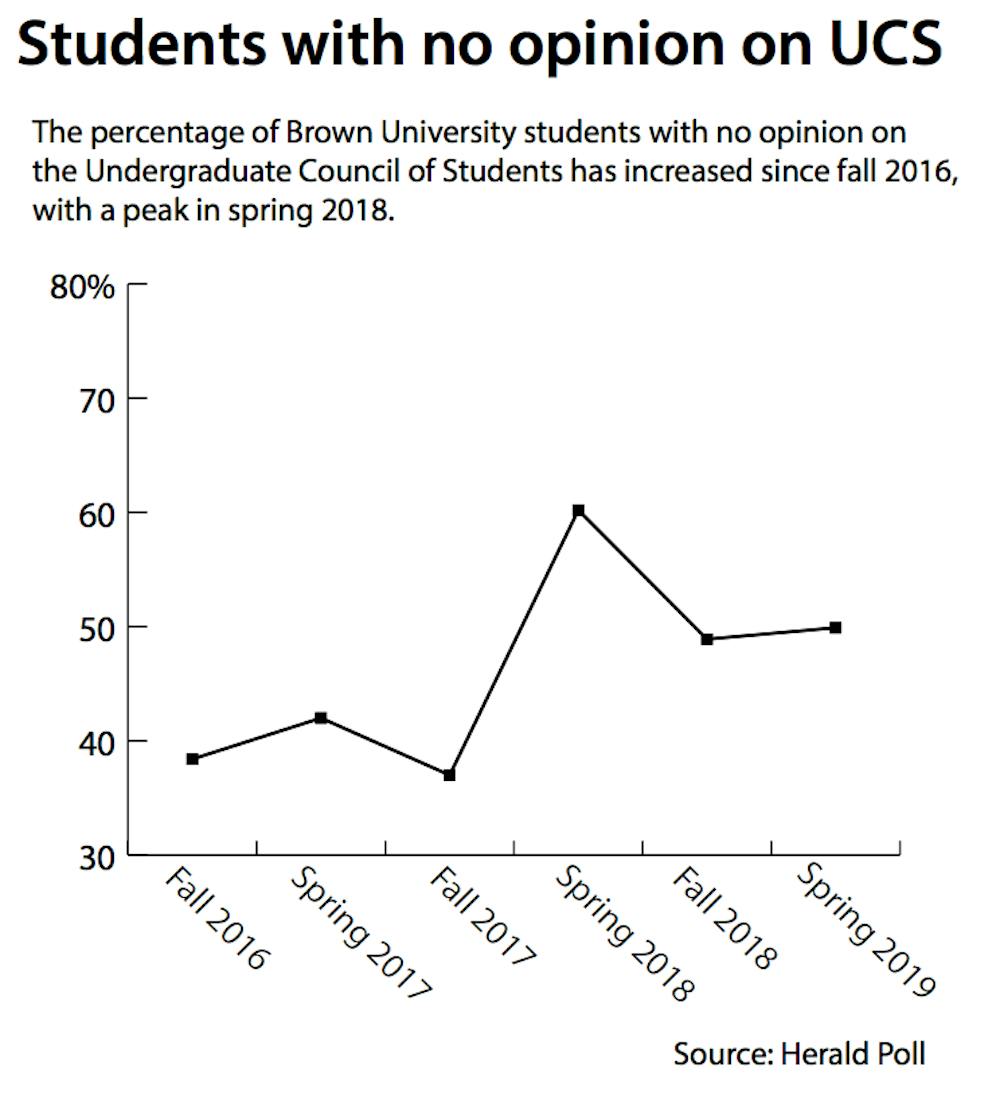Almost half of undergraduate students — 49.9 percent — have no opinion on the Undergraduate Council of Students, while 40.7 percent of students either strongly or somewhat approve of the Council, according to The Herald’s spring 2019 poll.
This semester’s no opinion rate increased slightly from 48.9 percent in the fall, but both semesters’ results show a marked decrease from the spring 2018 rate of 60.2 percent.
“Compared to last year’s 60 percent of students who had no opinion, it’s great that fewer students have no opinion,” said UCS Vice President and President-elect William Zhou ’20. “Ideally, we want all students to have an opinion about UCS and, hopefully, a positive opinion supporting what we’re doing.”
The increased rate of students with an opinion on UCS this academic year could be a result of recent initiatives the Council has piloted, Zhou said. These include Campus of Consent bill trainings, more community-wide emails, increased project publicity on social media and the “Chip in on the Conversation” project, which invited students to converse with UCS members in the Blue Room, Zhou added.
Students interviewed by The Herald said they had no opinion on UCS because they lack awareness of the Council’s work.
“It feels like we have the elections, and then I don’t necessarily hear about any consequences,” said Gus Kmetz ’21. “I’m sure they’re doing something, … but I would definitely say maybe their publicity could be better.”
Though Hannah Santos ’19 said UCS is important, she does not consider herself informed about the Council in part because she does not know where to find more information.
“My lack of knowledge or lack of opinion about UCS does not translate to disapproval or disappointment, necessarily,” she said.
To heighten student engagement and approval ratings, UCS plans to increase collaboration with the Class Coordinating Board and the Undergraduate Finance Board, work to be “more attuned” to campus conversations and make the Council more accessible, Zhou said. Over the summer, the executive board “will be thinking very critically about different ways in which UCS can become more efficient (and) more effective,” to help them “accomplish more community-building initiatives,” Zhou said.
Simple ways to increase student engagement next year include keeping the UCS website updated, expanding the Council’s social media presence and hosting more in-person feedback events, he added.
Santos suggested sending out more regular newsletters to ensure that the Council is “proactively communicating what’s going on.”
Recently, the Council has focused on facilitating conversations between students and administrators by creating spaces for them to meet, such as inviting administrators to general body meetings, Zhou said.
The Council has particularly been looking at “ways in which we can engage further with important administrative committees that can have a lot of influence on the day-to-day lives of students,” Zhou said.
UCS’ role as “a conduit for student voice,” is one of the Council’s most important functions, Zhou said, especially in light of results from The Herald’s poll indicating that almost 40 percent of students thought their voices and opinions have little to no influence on administrative decisions.
Increasing student engagement with UCS “has been a continuing conversation that we’ve been having, and I think that there have been improvements made,” said UCS President Shanzé Tahir ’19.
Zhou added that moving forward, “we want to continue building on the work that we’ve done this semester with creating those communication channels between administrators and student groups.”





